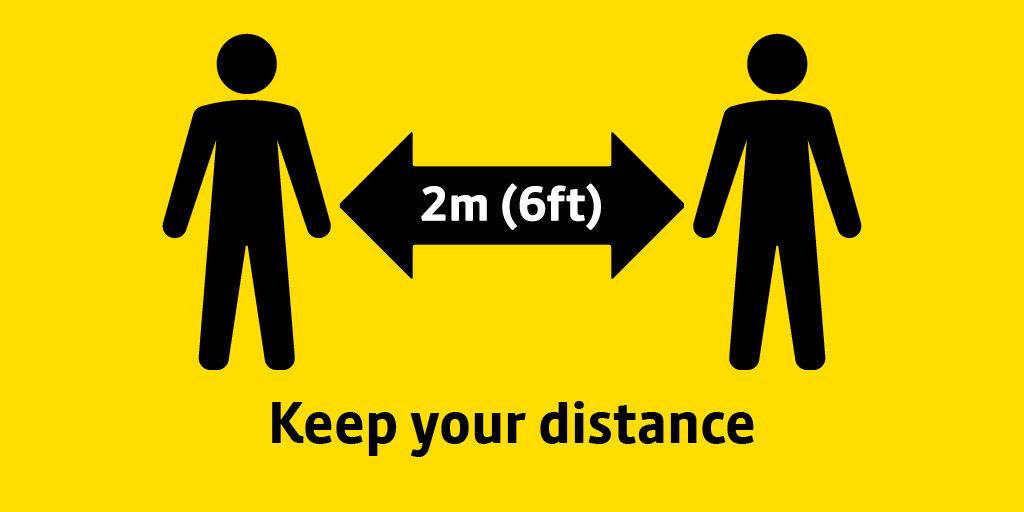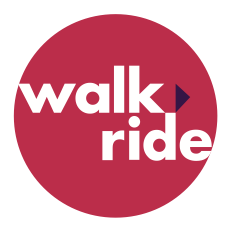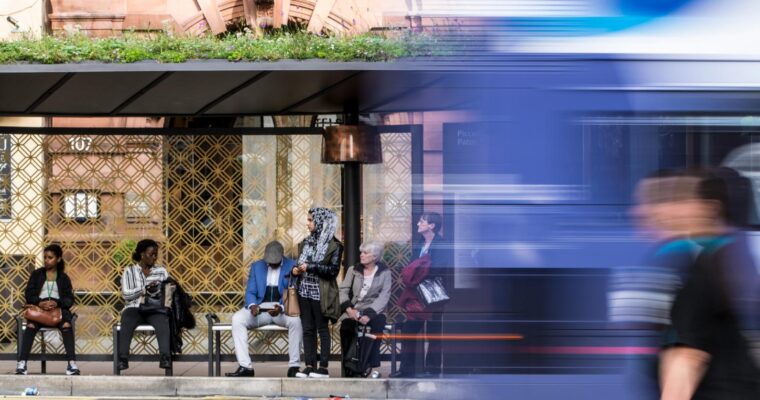Social justice issues lie at the heart of our campaigns to create healthy streets, and this is even more stark during the COVID-19. Chris Boardman, the Cycling and Walking Commissioner for Greater Manchester, reiterated this during an interview with Radio 4’s World at One in July 2020: “The most important point that isn’t getting across is: who is this for? [The A56 pop-up lane] isn’t actually a cycle lane at the moment; it’s an alternative to public transport.”
Here we highlight some of the reasons that active travel provides social justice, starting with Boardman’s point:
Public Transport Capacity
As Chris Boardman says in the World at One interview, one third one Greater Manchester households do not own a car, with that figure rising to 45% of households in Manchester. These people are largely the poorest in the Greater Manchester area and in the lowest-paid, most precarious jobs. They are disproportionately women and BAME people, who are known to be worst affected by COVID-19.
The alternatives for those who do not own a car are usually many and varied, from the regional Metrolink to the bus network to cycling and walking. However, currently, in a time when we have been told it is our civic duty to avoid public transport, those options are limited. Even with face coverings, public transport use will be severely restricted to as little as 20% of capacity, so there needs to be a safe option for those who would usually use public transport to go to work, shops, school or elsewhere. With previously 300,000 daily public transport users, it would mean 240,000 people per day need to find a transport mode that isn’t car or public transport.
Without imminent provision of safe travel lanes, which could accommodate bicycles, e-bikes, scooters, skateboards and more, those without access to a car would face tough choices. Should they risk their and their family’s health by boarding an overcrowded bus? Should they risk getting into debt leasing a car? Or should they stay at home and risk losing their jobs?

Car Financing
The increased availability of car finance has kept car sales high over the past few years. The widespread use of car finance means that very few people actually own their cars; they lease them and have to keep up monthly payments on them, a bit like a mortgage.
Given this situation, people working in finance are worried that car finance could lead to the next ‘credit crunch’ (£). In practical terms, a rise in unemployment will also mean a lot of people losing their cars. There is risk of more people being added to the 80% of regular public transport users unable to fit onto trains and buses in the context of social distancing, as they search for work.
Therefore, the economic downturn as a result of COVID-19 is likely to hit hardest those who have been forced into car dependency and cannot afford to retain a car without their regular income.
Add to this the fact that driving is already heavily subsidised and it becomes clear it’s harmful to society on social, economic and environmental considerations, as the next point illustrates…
Pollution and Severance of Inner-city Communities
Since the proliferation of the motor car in the 1960s, air and noise pollution has affected social cohesion, which has in turn been shown to predict unhealthy behaviours, poor health and mortality. The communities around the most polluted routes are among the poorest in Greater Manchester – including a disproportionate number of BAME residents – and experience health inequalities as a result.
Studies have shown that air pollution, deprivation and poor health can combine to increase risk of disease. During a respiratory disease pandemic, this means that by inviting cars back onto our roads – and not providing safe, direct routes for more space-efficient alternatives – we are condemning those living in areas of the poorest air quality (Air Quality Management Areas, or AQMAs) to greater vulnerability to disease, including COVID-19.
COVID-19 has particularly highlighted this social injustice in relation to air pollution’s impact on BAME residents – a study found that, “patients from ethnic minorities were twice as likely as white patients to live in areas of environmental and housing deprivation, and that people from these areas were twice as likely to arrive at hospital with more severe coronavirus symptoms and to be admitted to intensive care units.”
So Chris Boardman’s call for travel heroes to use active travel modes unless absolutely impossible takes on another health imperative: ensuring that people’s health is not impacted and pressure is not piled back onto the NHS.

Bicycle Access
By comparison with driving, and even public transport, riding a bicycle is very cheap. However, in the context of travel options during COVID-19, there is a risk that the poorest in society may not be able to afford a bicycle in the short-term, so excluding them from the benefits of getting around that cycling brings, such as trips to work. Here, the Greater Manchester councils must step in to support the most deprived in society.
West Midlands Combined Authority (WMCA) is helping by funding The Active Wellbeing Society to help with initiatives such as short-term bike loans. WMCA are also offering to deliver free cycle parking racks to up to 100 businesses in the region, so mechanisms are available to authorities.
Images courtesy of TfGM.


One reply on “Why Prioritise Active Travel? The Social Justice Reasons”
[…] favoured city centre pedestrian-focused interventions to improve movements around the city centre, seemingly without consideration for people who live within cycling (but not walking) distance of the city […]